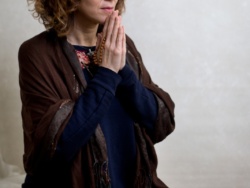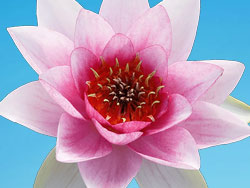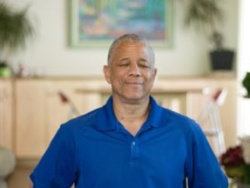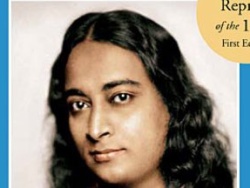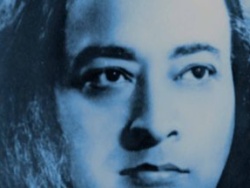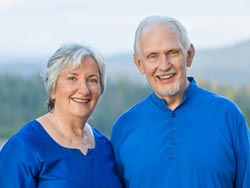“Memory was given to us to keep alive only life’s good experiences and lessons.” Paramhansa Yogananda
When I was a young child, I would occasionally wake up crying in the middle of the night from a bad dream. Fortunately, I had a wise, loving mother who would come and sit by my bed to comfort me. Her advice on such occasions was always the same: She didn’t ask about the scary dream, but would say, “Let’s think about some happy memories, like when our family went to the ocean. Remember how much fun we had?”
Invariably, I would start feeling better, the scary dream would fade from memory, and I would soon drift back to sleep. Though I don’t think that my mother was aware of it, she was sharing with me an important aspect of Paramhansa Yogananda’s teachings: the right use of memory to change our consciousness.
He wrote: “Memory was given to us to keep alive only life’s good experiences and lessons. Get rid of wrong thoughts by avoiding recalling them. If they come to mind in spite of you, refuse to entertain them. Let me repeat: To remember bad experiences and dwell upon them is an abuse of God’s gift to us of memory.”
For the past two years, we all have faced many challenges in dealing with the global pandemic. The signs are starting to seem hopeful that we may be moving past the devastation of Covid into a new era free of the suffering and loss that we’ve seen. These painful experiences have left deep impressions for most people which have the potential to influence their life into the future.
Now is an important time to work consciously with our memories so that we don’t carry the suffering forward with us. Memory is the mental note made of every thought or action when it first occurs, which is stored in the brain as a thought pattern. The word “remember” comes from re, “again,” and memorari, “to be mindful of.”
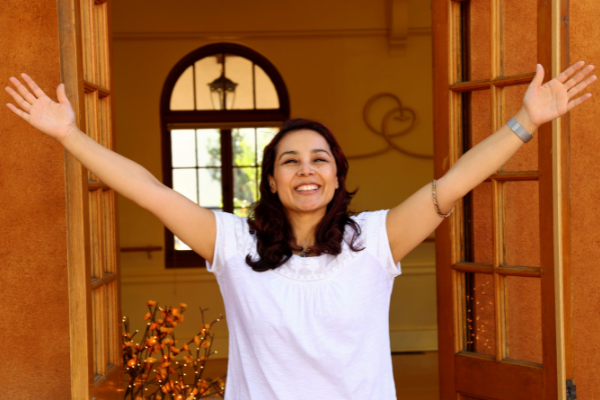 Try consciously to bring to mind the good memories you’ve acquired during this period: the kindness of strangers, an inspiring story about the efforts of medical teams to help others, the times of deepened prayer and calling on God, the fulfillment found in simple pastimes, or loving conversations with friends, to name but a few.
Try consciously to bring to mind the good memories you’ve acquired during this period: the kindness of strangers, an inspiring story about the efforts of medical teams to help others, the times of deepened prayer and calling on God, the fulfillment found in simple pastimes, or loving conversations with friends, to name but a few.
Yoganandaji said, “Deep, alert attention with feeling is the needle that cuts grooves in the record of your memory cells.” This is true for both positive and negative memories. Since our memory is linked to past karma, by concentrating on good memories we can actually ameliorate and change negative karmic patterns.
Master went on to say, “One should not bring back any wrong thought and relive it, for then it will stay longer in the mind. Through the right use of memory, we can reproduce those experiences of our past lives that are beneficial for the increase of knowledge in this life.”
Avoiding negative people and media is also important in redirecting our memories toward good experiences. Destructive words and downward-pulling conversations have the power to keep us focused on bad memories. These will prolong the suffering long after an adverse experience is over.
So remember, choose to recall good memories: not only from the past two years, but from your whole life. This isn’t being in a state of denial, but rather choosing to be free of the experiences that have brought you suffering. A focus on positive past experiences leads to a happier future. As Master said, “If you keep your brain, your mind, your body filled with happy memories, the greatest good of all, God, will come and remain with you.”
In His love,
Nayaswami Devi
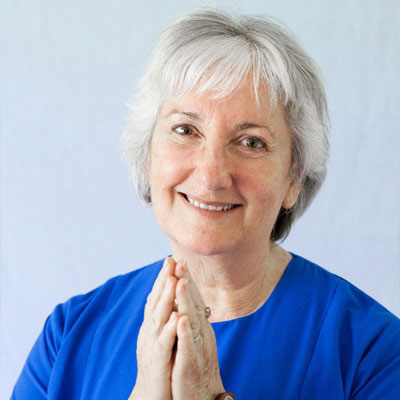 Nayaswami Devi first met Swami Kriyananda, Ananda’s founder, in 1969 and dedicated her life to the spiritual path. In 1984 she and her husband Jyotish began serving together as Spiritual Directors of Ananda Sangha Worldwide. Since Kriyanandaji’s passing in 2013, Jyotish and Devi have carried on the great work that Yogananda commissioned him to do.
Nayaswami Devi first met Swami Kriyananda, Ananda’s founder, in 1969 and dedicated her life to the spiritual path. In 1984 she and her husband Jyotish began serving together as Spiritual Directors of Ananda Sangha Worldwide. Since Kriyanandaji’s passing in 2013, Jyotish and Devi have carried on the great work that Yogananda commissioned him to do.
